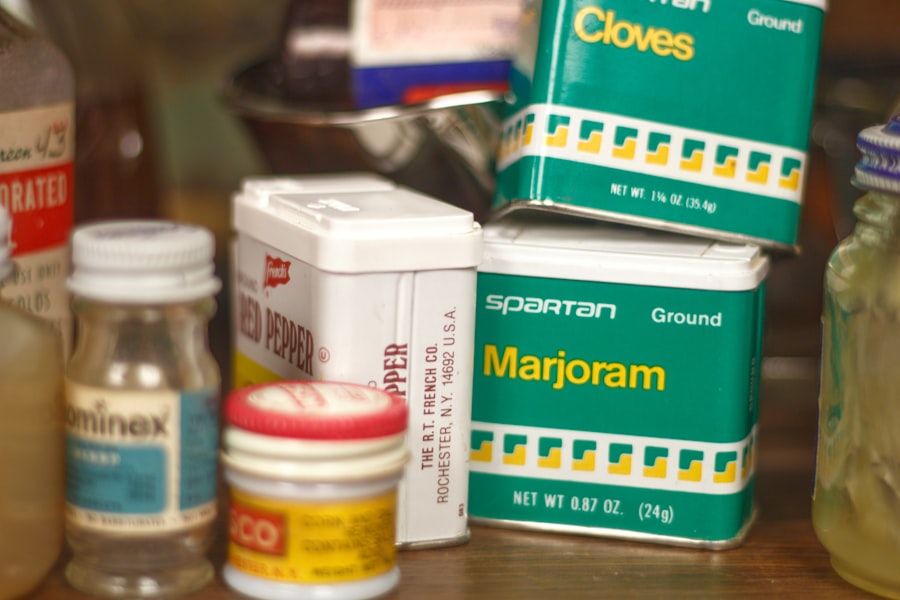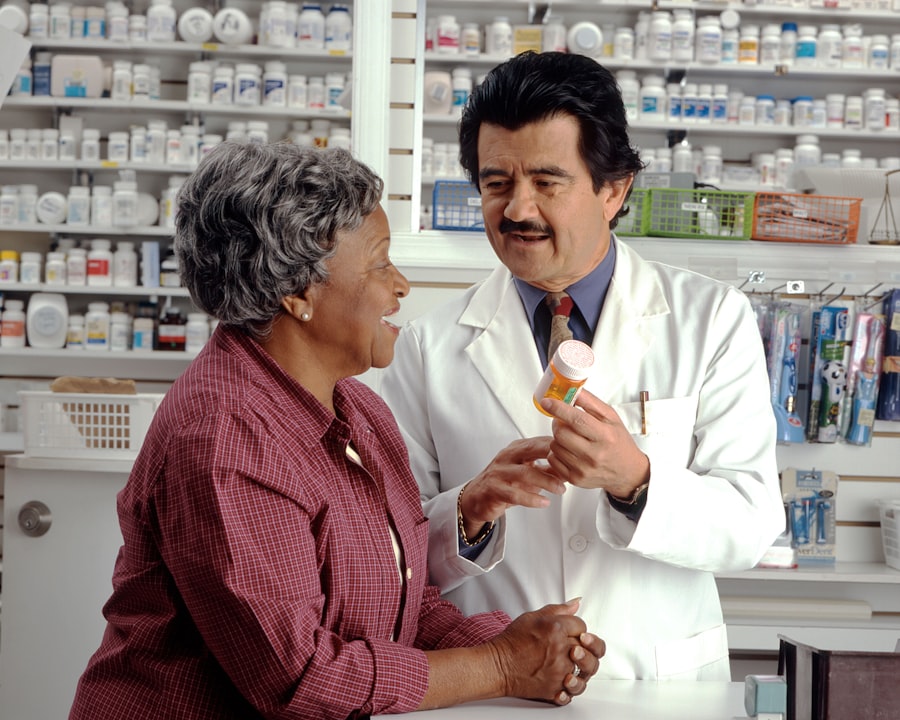Over-the-counter (OTC) medicine plays a crucial role in managing everyday health issues. These medications are available without a prescription, making them easily accessible for treating common ailments such as headaches, colds, allergies, and digestive issues. You might find yourself reaching for these remedies when you experience discomfort, as they offer a convenient solution for minor health concerns.
However, it’s essential to understand that while OTC medicines can be effective, they are not without risks. Knowing how to use them safely and effectively is vital for your well-being. OTC medicines come in various forms, including tablets, capsules, liquids, and topical applications.
Each type serves a specific purpose, and understanding the differences can help you make informed choices. For instance, some medications are designed to relieve pain, while others may target symptoms like congestion or allergies. As you navigate the world of OTC medicine, it’s important to recognize that just because a product is available without a prescription doesn’t mean it’s entirely risk-free.
Key Takeaways
- OTC medicine refers to over-the-counter medication that can be purchased without a prescription
- Research the medicine to understand its uses, potential side effects, and interactions with other medications
- Read the label carefully to ensure proper dosage and to be aware of any warnings or precautions
- Always check for expiry dates to ensure the medicine is safe and effective to use
- Consult with a pharmacist for any questions or concerns about OTC medicine
Researching the Medicine
Before you decide to take any OTC medication, conducting thorough research is essential. You should start by identifying the specific symptoms you are experiencing and determining which medications are designed to address those issues. A quick online search or consultation with a healthcare professional can provide valuable insights into the most effective options available.
By understanding the active ingredients and their mechanisms of action, you can make more informed choices about which products to consider. Additionally, it’s wise to look into any potential interactions with other medications you may be taking. You might be surprised to learn that some OTC medicines can interact negatively with prescription drugs or even other over-the-counter products.
This is particularly important if you have pre-existing health conditions or are pregnant or breastfeeding. Taking the time to research your options not only enhances your safety but also increases the likelihood of finding a remedy that works effectively for your specific needs.
Reading the Label

Once you’ve narrowed down your options, the next step is to read the label carefully. The label contains crucial information about the medication, including its active ingredients, dosage instructions, and potential side effects. You should pay close attention to the recommended dosage, as taking more than advised can lead to serious health complications.
Understanding how to interpret the label will help you use the medication safely and effectively. Moreover, labels often include warnings about specific populations who should avoid certain medications. For example, some products may not be suitable for individuals with certain medical conditions or those who are taking specific medications.
By thoroughly reading the label, you can ensure that you are making a safe choice for your health.
Checking for Expiry Dates
| Product | Expiry Date | Days Left |
|---|---|---|
| Milk | 2022-08-15 | 30 |
| Bread | 2022-08-20 | 35 |
| Eggs | 2022-08-10 | 25 |
Another critical aspect of using OTC medicine is checking for expiry dates. Medications can lose their effectiveness over time, and using expired products can pose risks to your health. When you purchase an OTC medication, make it a habit to check the expiration date before leaving the store.
This simple step can save you from potential disappointment when you need relief from your symptoms. If you have OTC medicines at home, regularly check their expiry dates and dispose of any that have expired. You might be surprised at how many products accumulate in your medicine cabinet over time.
Keeping track of these dates ensures that you are only using effective medications when you need them most. Additionally, expired medications should never be flushed down the toilet or thrown in the trash without following proper disposal guidelines, as this can harm the environment.
Consulting with a Pharmacist
When in doubt about which OTC medication to choose or how to use it safely, consulting with a pharmacist can be incredibly beneficial. Pharmacists are trained professionals who possess extensive knowledge about medications and their effects on the body. They can provide personalized recommendations based on your specific symptoms and medical history, helping you make informed decisions.
You might find that pharmacists can also offer insights into alternative treatments or lifestyle changes that could alleviate your symptoms without the need for medication. They can answer any questions you may have about potential side effects or interactions with other medications you’re taking. By leveraging their expertise, you can feel more confident in your choices and ensure that you are using OTC medicines safely and effectively.
Avoiding Counterfeit Products

In today’s market, counterfeit products pose a significant risk to consumers seeking relief from their ailments. When purchasing OTC medicine, it’s essential to buy from reputable sources to avoid falling victim to counterfeit products that may contain harmful ingredients or incorrect dosages. You should always purchase medications from licensed pharmacies or trusted retailers to ensure their authenticity.
Additionally, be cautious when shopping online for OTC medicines. While many legitimate websites offer these products, some may sell counterfeit or expired items. Look for signs of authenticity, such as proper packaging and labeling, and avoid deals that seem too good to be true.
By being vigilant about where you purchase your medications, you can protect yourself from potential harm and ensure that you are using safe and effective products.
Following Dosage Instructions
Following dosage instructions is one of the most critical aspects of using OTC medicine safely. Each product comes with specific guidelines regarding how much and how often to take it. You should adhere strictly to these recommendations to avoid adverse effects or complications.
Taking more than the recommended dose does not necessarily lead to faster relief; in fact, it can result in serious health issues. If you find that the recommended dosage isn’t providing relief after a reasonable amount of time, it’s essential not to increase the dose on your own. Instead, consider consulting with a healthcare professional for further guidance.
They can help determine whether a different medication or treatment approach may be more effective for your situation. By respecting dosage instructions, you prioritize your health and safety while maximizing the benefits of OTC medicine.
Being Aware of Potential Side Effects
Every medication comes with potential side effects, and OTC medicines are no exception. As you consider taking an over-the-counter remedy, it’s crucial to familiarize yourself with possible adverse reactions associated with it. Common side effects may include drowsiness, nausea, or gastrointestinal discomfort; however, more severe reactions can occur in some individuals.
You should always monitor how your body responds after taking an OTC medication. If you experience any unexpected or severe side effects, it’s important to seek medical attention promptly. Being aware of potential side effects allows you to make informed decisions about whether a particular medication is right for you and helps ensure that you use it safely.
Keeping OTC Medicine Out of Reach of Children
Safety is paramount when it comes to storing OTC medicine in your home. Children are naturally curious and may not understand the dangers associated with medications. To prevent accidental ingestion or misuse, always keep OTC medicines out of reach of children or in locked cabinets if necessary.
This simple precaution can save lives and prevent serious health complications. You should also educate older children about the importance of not taking medications without adult supervision. Teaching them about the potential dangers of misusing OTC medicines fosters a culture of safety within your household.
By being proactive in securing these products, you create a safer environment for everyone in your home.
Storing OTC Medicine Properly
Proper storage of OTC medicine is essential for maintaining its effectiveness and safety. You should store medications in a cool, dry place away from direct sunlight and moisture, as these factors can degrade their quality over time. Avoid keeping them in bathrooms where humidity levels fluctuate significantly; instead, opt for a designated storage area that remains stable.
Additionally, ensure that all medications are stored in their original containers with labels intact. This practice helps prevent confusion and ensures that you have access to important information regarding dosage and expiration dates when needed. By taking these steps to store your OTC medicines properly, you contribute to their longevity and effectiveness.
Knowing When to Seek Professional Medical Advice
While OTC medicines can be effective for managing minor health issues, there are times when seeking professional medical advice is necessary. If your symptoms persist despite using over-the-counter remedies or worsen over time, it’s crucial to consult with a healthcare professional. They can provide a thorough evaluation and recommend appropriate treatments tailored to your specific needs.
Additionally, if you experience severe side effects or have concerns about potential interactions with other medications, don’t hesitate to reach out for help. Your health is paramount, and knowing when to seek professional guidance ensures that you receive the best possible care for your situation. By being proactive about your health and recognizing when it’s time to consult a professional, you empower yourself to make informed decisions regarding your well-being.
In conclusion, navigating the world of OTC medicine requires careful consideration and informed decision-making. By understanding what these medications are, researching options thoroughly, reading labels diligently, checking expiry dates regularly, consulting pharmacists when needed, avoiding counterfeit products, following dosage instructions closely, being aware of potential side effects, keeping medicines out of reach of children, storing them properly, and knowing when to seek professional advice, you can use OTC medicines safely and effectively for your health needs.
When considering how to buy safe over-the-counter medicine, it’s essential to be informed about the various options available and the potential risks involved. A helpful resource on this topic can be found in the article on
